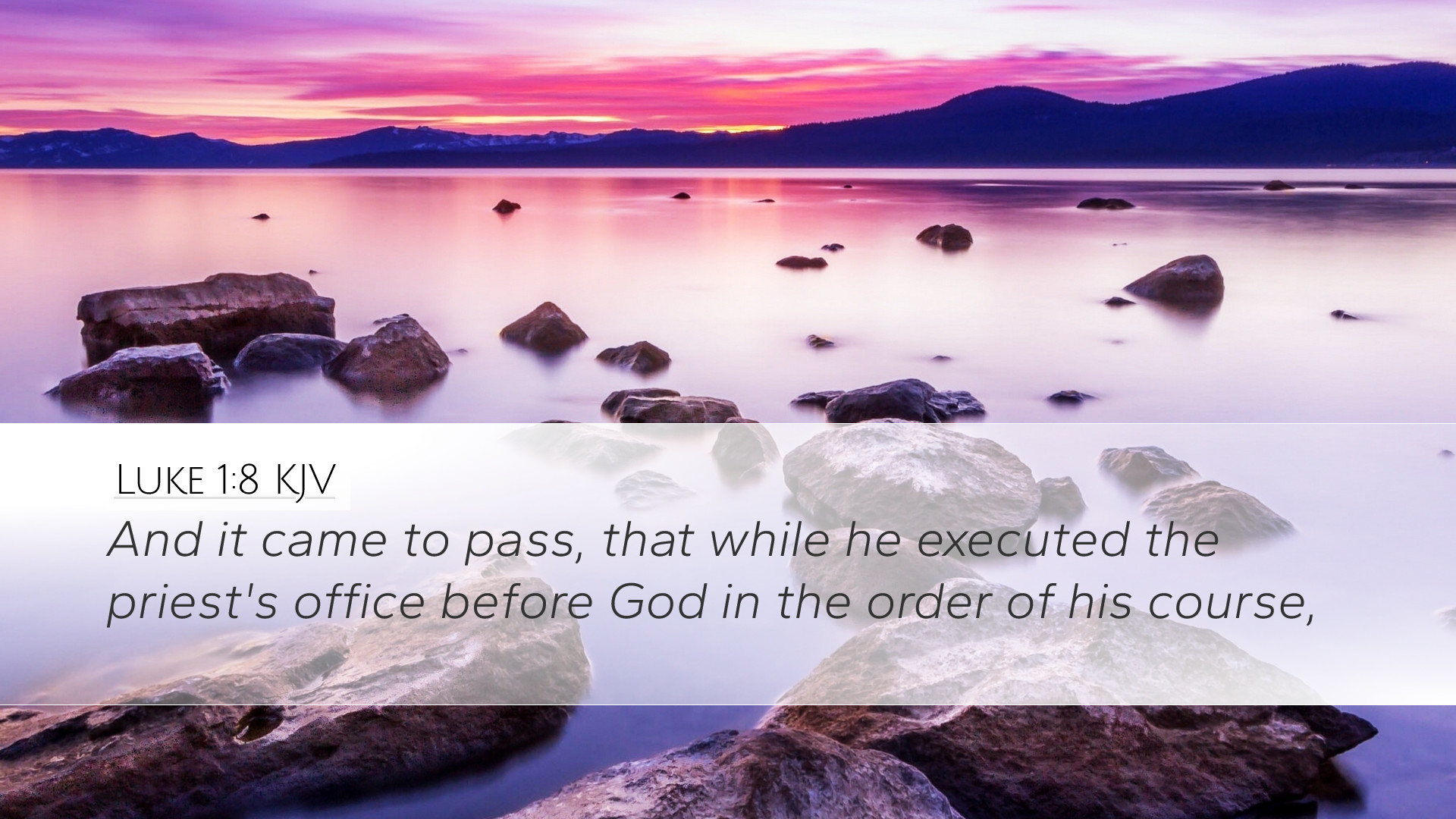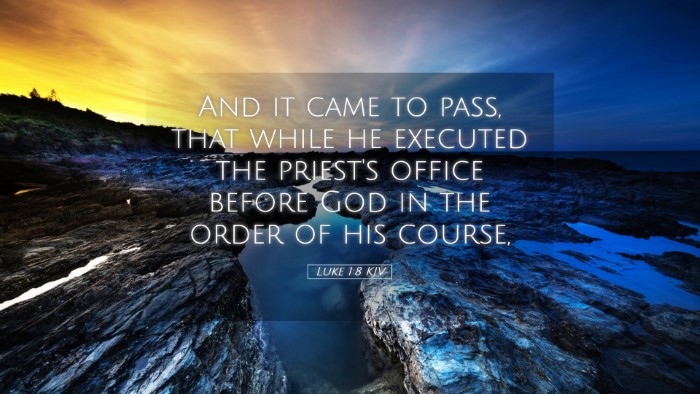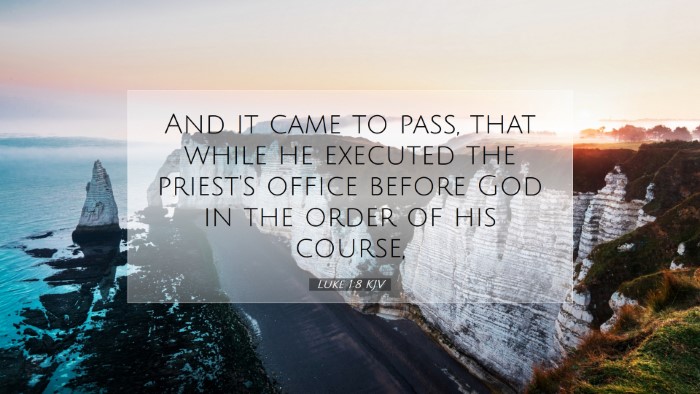Commentary on Luke 1:8
Luke 1:8: "And it came to pass, that while he executed the priest's office before God in the order of his course,"
Introduction
In this verse, we encounter Zechariah, a priest of the division of Abijah. This moment is significant in the Gospel narrative, introducing the divine intervention that leads to the birth of John the Baptist. Various public domain commentaries provide insights into the context, significance, and interpretation of this passage.
Contextual Analysis
Historical Background: As noted by Matthew Henry, the priestly duties during this time were particularly structured and filled with a sense of divine purpose. The Jewish priesthood was divided into courses, each serving in the Temple in Jerusalem at different times. Zechariah's lineage connects him to a long-standing tradition of service to God, reflecting the faithfulness of the priestly line.
Scriptural Context: This verse introduces Zechariah amid a period of silence from God, as described in the intertestamental period. Commentators argue that this silence sets the stage for the coming of Christ and his herald, John. According to Albert Barnes, Zechariah's service comes in a time where the people had long awaited a prophetic revelation.
The Priesthood of Zechariah
Role and Responsibilities: As emphasized by Adam Clarke, Zechariah was not only fulfilling the duties of a priest; he was participating in a significant divine plan. His role involved burning incense, which was symbolic of the prayers of the people ascending to God. Clarke elaborates on the spiritual implications of this service, suggesting that the act of incense burning signifies the intercession for God's mercy and presence among His people.
Order of His Course: The phrase "in the order of his course" indicates the structured nature of the priestly duties. Matthew Henry notes that this systemic design highlights God's sovereignty in administering worship, wherein every priest had an appointed time and function. This order reflects God's overall plan, as even the details of Zechariah's service were ordained by Him.
Spiritual Significance
Divine Providence: The execution of his priestly office marks an intersection where human faithfulness meets divine intention. As Barnes comments, this underscores a crucial principle: God's works often unfold within the ordinary contexts of life. Zechariah's fidelity in fulfilling his priestly duties exemplifies the call for all believers to remain faithful even in seemingly mundane tasks.
Anticipation of Fulfillment: This moment is pivotal as it lays the groundwork for the angelic visitation that will follow. Clarke articulates that this verse represents a transition point, where the old covenant's priesthood is about to give way to the new covenant inaugurated by Christ and heralded by John the Baptist. The faithful service of Zechariah in the temple foreshadows the faithful ministry of Jesus, who is the ultimate intercessor.
Applications for Today
Faithfulness in Service: For pastors and church leaders, Zechariah's dedication serves as a model for ministry. Engaging faithfully in one's calling, even when results are not immediately evident, is crucial. Henry encourages believers to recognize that God can use their obedience in powerful ways, often beyond their immediate understanding.
The Importance of Prayer: The act of burning incense symbolizes prayer— a vital element of spiritual life and ministry. Barnes reminds us that prayer is our communication with God, and like Zechariah, we must persist in prayer, trusting in God's timing and providence.
Conclusion
Luke 1:8 encapsulates a rich tapestry of themes surrounding faithfulness, divine providence, and the anticipation of God's promises. Through the insights of Matthew Henry, Albert Barnes, and Adam Clarke, we gain a deeper understanding of not only the context of Zechariah's priestly service but also its implications for our lives today. Recognizing this moment within the larger narrative of God's redemptive plan encourages pastors, students, theologians, and Bible scholars to remain steadfast in their own ministrations and to trust in the unfolding story of God's grace.


